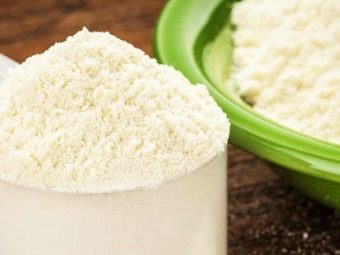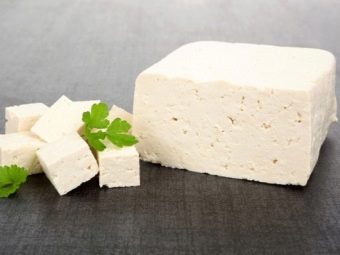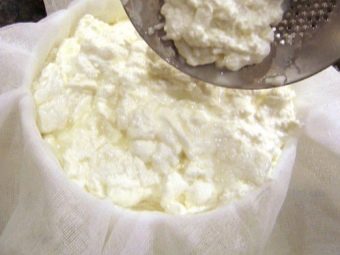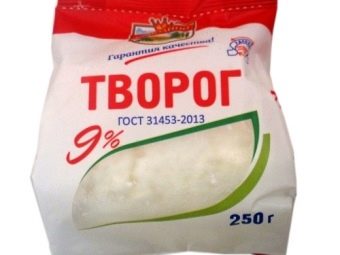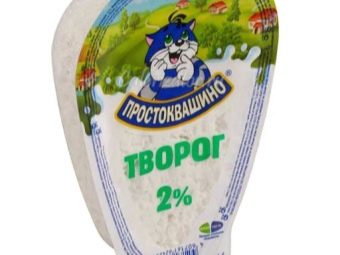Features of protein in cottage cheese
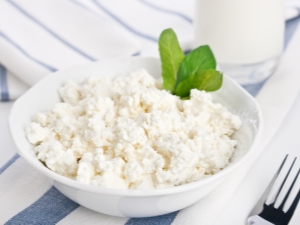
Often it is necessary to hear the statement that cottage cheese is very useful.On the question "what?" Many will answer that high in protein. But what, in fact, is protein, what does a person need it for, is it really in the curd and how much protein does it contain - these questions are capable of causing difficulty.
Is there a product?
In order to understand what are the features of protein in cottage cheese, you need to find out what kind of product. Cottage cheese is obtained from sour milk. As a result of heating, yogurt is divided into two substances — a white, curd mass and whey, which is removed by pressing. In some European countries, the result of this process is called cheese, in Russia - cottage cheese. The taste of a quality fresh product is very pleasant, delicate, with a little noticeable sourness.
Cottage cheese is rightfully leading in the list of products needed by man. Its benefits are indisputable and due to its composition, including phosphorus, calcium, vitamins A, B, C, carbohydrates, fats, proteins. It is noteworthy that the heat treatment does not affect the useful properties, therefore, the curd is traditionally used to make cheese cakes, curds, dumplings, casseroles, confectionery. Cottage cheese is ideally combined with berries, fruits, greens, cucumbers. Often it is added sour cream or cream.
Protein is an organic substance that is a chain of amino acids. Without proteins, no living organism can exist, as they are a kind of “building materials” for cells, tissues and all organs. The composition of enzymes and hormones also includes a significant amount of protein compounds. And hemoglobin, so necessary for supplying blood with oxygen, is essentially a protein. Therefore, it is not by chance that protein is also called protein. From the Greek language, “protos” is translated as “first,” that is, protein is just the substance that is primary for life.
Human cells contain thousands of different proteins. Each of them, in turn, consists of twenty amino acids, combined with each other in a huge number of sequences. These sequences (or chains) and determine a certain functional load of each protein compound.
The body does not make protein reserves, so it must constantly come along with food. Cottage cheese refers to products in which the much-needed protein is contained in a sufficiently large quantity and is easily digested.
Protein curd called casein. It consists of such amino acids that the body itself cannot synthesize, but it cannot exist without them:
- lysine - normal growth, tissue repair, production of necessary enzymes, antibodies, hormones are impossible without it;
- methionine - the main "building material" for all cells;
- tryptophan - a source of good mood; entering the body, is converted to serotonin, which controls the emotional state; depression, insomnia, headache, attention disorder - this is an incomplete series of effects of low tryptophan content.
Maybe it's all carbohydrates?
The thing is that the functions of proteins and carbohydrates in the body are not identical. Carbohydrates are part of the cellular composition, but proteins are the "builders" of cells and tissues, and carbohydrates are sources of energy. For the normal functioning of the body are important and those and others.
Carbohydrates are also found in cottage cheese, but in smaller quantities than proteins. High protein content contributes to a better absorption of carbohydrates and faster metabolism, that is, carbohydrate metabolism. Almost perfect ratio of these vital compounds is present in the curd.
What is it: vegetable or animal?
Of course, in the cottage cheese contains animal protein, because this product itself is of animal origin. With a big stretch, you can replace the usual cottage cheese with soybean, the so-called tofu, which is obtained by processing soy milk.The color and consistency are almost cottage cheese, even the smell is somewhat similar, but the composition and properties are completely different.
Tofu - the richest source of vegetable proteins, no less useful than animals. As in cottage cheese, it contains a lot of calcium. But virtually no carbohydrates. But soy is a plant that is very easily susceptible to gene modification. The inscription on the package "does not contain GMOs" is a complete guarantee, unfortunately, is not. And the value of this product is very low.
Content per 100 grams
The amount of protein in 100 grams of the product ranges from 14 to 18 grams and depends on its fat content. The less fat - the more protein. Before we talk about the quantitative ratio of the components contained in the cottage cheese, it is necessary to find out how home cottage cheese differs from the store purchased, and why the fat content of this product is so important.
“Homemade” is a home-cooked product by ordinary milk ripening a product without any extraneous additives. A kilogram of cottage cheese can be obtained from five to six liters of milk. Of course, this is the most valuable and dietary product, safe for baby food, because there is no doubt about its composition and freshness. It should be noted that freshness for cottage cheese is a very important indicator, since of all dairy products it deteriorates the fastest.
To get low-fat cottage cheese can be a very simple way - put the milk in the refrigerator for several hours and then carefully remove the top layer of cream. Almost fat-free cottage cheese will turn out from the milk passed through the special device - a separator.
You should take a closer look at the composition of purchased cottage cheese: unscrupulous manufacturers can add coconut or palm oil, vegetable fats (which cannot be called useful) to increase the fat content, or add starch to add weight. The shelf life is often increased by various chemical additives.
Different degrees of fat
According to the degree of fat content, curd products can be divided into three groups: fat, with a fat content of about 18%, bold - 5-9%, and fat-free - 0.1-2%.
Of course, the most delicious and delicate will be homemade country cottage cheese from selected whole milk. In it, depending on the fat content of milk, the fat content can be from 18 to 25%. Per 100 grams of such curd accounts for 14 g of proteins. This will be almost 20 percent of the daily requirement. But such a product is very high in calories and can cause an increase in body weight.
The most common is bold cottage cheese (9%), which is made from skimmed milk with the addition of whole milk. This cottage cheese contains 16-17 g of proteins, which is 20-22% of the daily norm. It is recommended to everyone who adheres to the principles of healthy eating, is not burdened with excess weight and at the moment does not adhere to a diet.
The best option - cottage cheese with 5% fat. Per 100 g in it accounts for the largest amount of protein - 18 g, and it will replenish the daily rate by 23%, and in addition will provide the necessary amount of carbohydrates.
In low fat cottage cheese 0% fat?
It is impossible to completely “free” cottage cheese from fat, so the percentage of fat content cannot be zero. As a rule, it ranges from 0.1% to 1.8%.
About the benefits and harms of low-fat cottage cheese dietitians do not stop arguing. On the one hand, a person receives the required amount of easily digestible proteins (16 g) with a minimum amount of fat, which allows it to be used as food even for obese people. But on the other - nutritional and energy value of such a product is reduced:
- along with fats, vitamins A, D, E soluble in them practically disappear;
- lecithin and kefalin necessary for the nervous system also disappear;
- Calcium and phosphorus are absorbed worse;
- Tastes are different from other varieties, and manufacturers can add flavors, fruit or berry fillings “to improve” the taste, which are unlikely to be natural and add value to the product.
Which cottage cheese to give preference - a personal matter. One thing is certain: this product is essential for obtaining vitamins, minerals, and so necessary for ensuring the vital functions of the body protein.
This video presents a recipe for cooking homemade cottage cheese.



